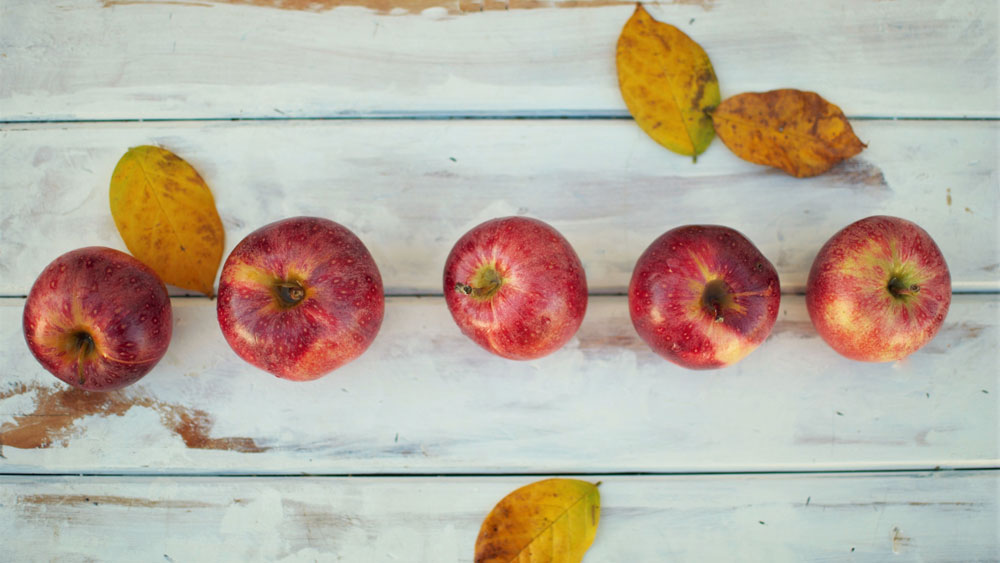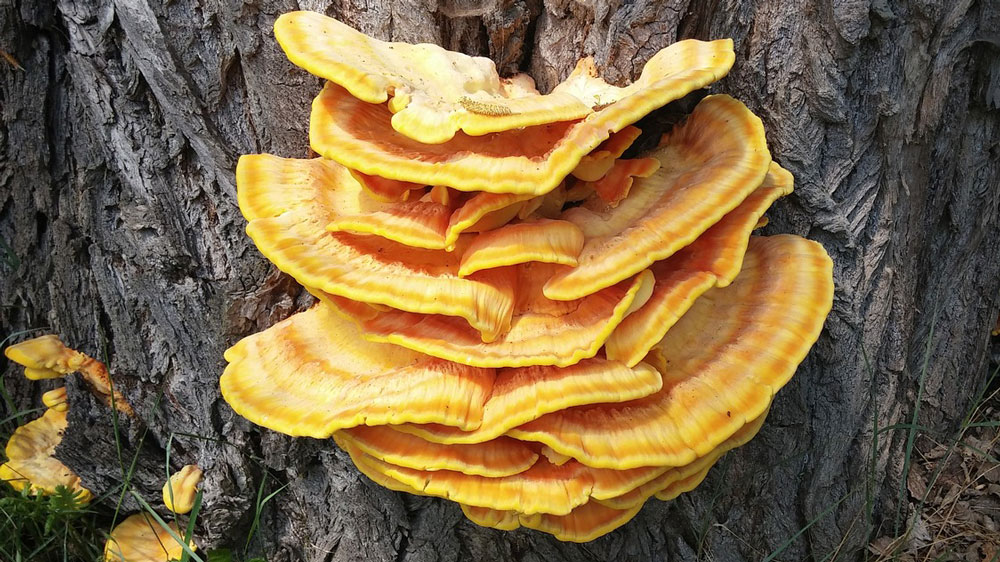- Chapel Hill Bodyworks
Wellness Center
3520 Chapel Hill Road
Johnsburg, IL 60051(815) 578-8430 By Appointment Only
Tue10:00 am - 7:00 pmWed1:00 pm - 7:00 pmThu10:00 am - 7:00 pmFri10:00 am - 7:00 pmSat10:00 am - 2:00 pm
-
Latest Articles:
- • Add These 10 Immune-Boosting Foods to Your Fall Diet •
- • Keep Your Skin Healthy and Glowing with these Fall Skincare Tips •
- • Beat End of Year Burnout with these Fall Self-Care Rituals •
-
- Sign up to receive news and updates and get my free report:“The Top 10 Reasons to Try Acupuncture”

Health WellNews
How Weather Affects Pain
Almost everybody has heard one of their relatives complain about how painful their joints become when the weather changes, especially when it gets cold or rainy. But is there any validity to this claim? And what about people who live live in consistently cold, rainy or damp climates? Do they have the same complaints about body aches and pains? The short answer is both yes and no. There is some truth to this, but it might not be what you think.

Achy joints, arthritis flare ups and intense migraines are just some of the ways people can predict the weather coming. And while it may seem far-fetched, there is something going on there. Scientists have studied this, but even they can’t agree. There are however, several theories why weather affects pain. The most common theory is air pressure, or barometric pressure, is what is actually affecting pain levels.
Barometric pressure is the weight of the atmosphere that surrounds us. Just before a storm hits, barometric pressure drops. The lower air pressure allows the tissues to expand and this can lead to added pressure on the joints. This may increase pain in those areas.
Another theory is more psychological. It is well documented weather can affect a person’s mood. When a person feels gloomy or depressed, their perception of pain can be increased. This happens frequently in areas where winters are long and cold. It even has a name: Seasonal Affective Disorder or SAD.
One thing for certain is our bodies adjust to our environments. A recent study looked at people in four cities: Nashville, San Diego and two cities in Massachusetts. The study concluded people experience changes in their pain when the weather changed no matter where they lived. Pain worsened when the barometric pressure fell, which occurs right before a storm or drastic weather changes. And since our bodies adjust to our environment, it is safe to say no matter where a person lives, their pain will go with them. They may not notice it as much at first after moving to a new climate, but eventually it will come back.
The weather affects our bodies in other ways too. High levels of humidity can thicken the blood over time. This can increase the pressure in the blood vessels and the heart. This causes the heart to work harder to pump the blood throughout the body and may ultimately lead to a stroke or a heart attack. Those living in high humidity climates also have to worry about excessive sweating that can lead to dehydration. When the body is dehydrated, the joints ache more. This is why drinking water is so important, not just in high humidity areas, but everywhere.
Regardless of the cause, acupuncture and Traditional Chinese Medicine can be very helpful in the treatment of aches and pains. No matter where you live, Traditional Chinese Medicine can help.
5 Reasons to Try Acupuncture This Winter
Winter is one of the five seasons acknowledged by Traditional Chinese Medicine. The ancient Chinese followed the belief humans should live in harmony with the cycles of nature. During the winter months, darkness and cold indicate we should slow down, take care of our health, conserve our strength and replenish our energy for the upcoming spring and summer months.

Each season has multiple associations that help us adjust our habits as things change, which makes it easier to keep the body and mind balanced. Winter is ruled by the water element. The water element is associated with the kidneys and urinary bladder. According to Traditional Chinese Medicine philosophy, the kidneys are the source of all energy found within the body. This energy is what keeps us alive and allows our bodies to function properly. During the winter months, it’s vital we nourish and nurture our kidney energy.
Winter is typically a time when we decrease our daily activities. For many people, this coupled with longer hours of darkness, can lead to Seasonal Affective Disorder. This form of depression occurs during the winter months. It can be very debilitating for those who suffer from it. But acupuncture can help. Studies show regular acupuncture treatments can be as effective as prescription medications for treating depression and seasonal affective disorder.
The most common ailment that occurs during the winter months is the cold. The cold is a viral infection of the upper respiratory tract, nose and throat. Because we’re not as active during the winter months, our immunity tends to be lowered and this is when the cold viruses can attack. While colds usually have to run their course, acupuncture can help shorten the length of the cold and drastically decrease the symptoms.
Over the past decade or so, the norovirus has become more prevalent during the winter months. This particular virus causes gastroenteritis or gastrointestinal tract disorders like diarrhea. During the initial few days of a norovirus attack, people need to stay home and hydrate themselves. But once the diarrhea becomes less frequent, acupuncture can be very helpful in decreasing the symptoms and boosting the person’s immunity.
5 Ways to Help You Wake Up and Get Active
Everybody experiences times where they have no motivation. Lack of motivation can be caused by many things: the weather, depression, nutritional deficiencies, rejection and even not exercising. For many, this seems contradictory. If I have no motivation, how am I supposed to go exercise? Well, it all comes down to choices and doing what is best for your body.

Lacking motivation can be detrimental to your health. Even though everybody knows they should be exercising, eating right and getting proper sleep, many of us choose not to. This becomes a bad habit that can actually develop into depression, fatigue, insomnia and even nutritional deficiencies that cause worse physical problems. We tell ourselves we don’t have time or we have no motivation or willpower. These are just stories we tell ourselves. Everybody has time to care for themselves. It’s just a choice we have to make. So here are some ways to help us wake up, get motivated and get moving.
ACUPUNCTURE
Acupuncture can help put the pep in your step when it comes to motivation. In Traditional Chinese Medicine (TCM), lack of motivation is considered a sort of blockage along the energetic pathways that run throughout the body. Most commonly, this affects the gallbladder and liver pathways. Over time, this lack of motivation frequently develops into depression. When the body is depressed, nothing seems possible. But there are underlying causes to depression that begin with lack of motivation.
FENG SHUI
This ancient art is used to energetically balance the home through the placement of the furnishings inside. The bedroom is particularly important because we spend so much time there. Feng Shui tells us your bed should be placed where it allows you to see the door without being in the direct path of the door opening. This allows for a sense of security, which can lead to more restful sleep.
GRATITUDE
Being thankful for everything you have in your life really does make a difference. Instead of seeing the day ahead of you as a burden and worrying about everything you have to do, be thankful you woke up again. This will shift how you look at things throughout the day and the rest of your life.
EXERCISE
Whether you’re a gym rat or not, exercise is vitally important. Going for a walk or a jog first thing in the morning can be refreshing and get the blood pumping. Studies show regular exercise in the morning can actually lead to more energy the next day.
MEDITATE/PRAY
Meditation and prayer allow the body to relax and the mind to calm down. Using this tool shortly before going to bed can be very beneficial. And as we all know, when the mind is quiet, the body relaxes more and we get better, more restful sleep, which gives us more energy and motivation to tackle the next day.
Try incorporating one or all of these practices into your life and see how much it affects you. And remember, studies show it takes 21 to 30 days of doing something consistently for it to become a habit. Are you up for the challenge?
5 Reasons to get Acupuncture this Fall
Fall is a favorite season for many people. The weather starts to get a little cooler, things begin to slow down and preparations for the holidays are in full swing. For many others, fall is not so festive. Many people get sick during the fall months, allergies can flare up and many don’t like that the hours of sunlight decrease steadily, sometimes leading to seasonal depression.

There are many reasons to get acupuncture during the fall. One of the biggest reasons is to avoid getting sick as the seasons change. In Traditional Chinese Medicine (TCM), fall is associated with the lung and large intestine energetic pathways. These two pathways work symbiotically to control the immune system from both the inside and outside of your body. And, if you take good care of these energetic pathways during the fall, you are bound to feel better throughout the season. But just to be sure, getting regular acupuncture treatments might be a good idea. It is recommended to start a couple of weeks before fall really kicks in.
Autumn is associated with the element of metal. According to TCM, the element of metal governs the mind, order, stability and organization. As fall approaches, we tend to be more reflective, turning inward and going into hibernation mode. It’s a great time to organize and prepare for the upcoming winter months. Emotionally, fall is associated with sadness and grief. Therefore, as the nights get longer, it is very important to keep the mind clear and let go of your negative emotions. Acupuncture can be a wonderful tool to help ward off depression, sadness and grief, both before and during the months of fall. Acupuncture treatments help balance moods by regulating hormones in the body.
For those who love the long hours associated with the summer months, fall is not easy to slide into, especially when it comes to sleep. Many people have difficulty going to sleep earlier, which is recommended when the days begin to shorten. This is where acupuncture can be beneficial. Certain acupuncture points are very effective at calming the mind and helping induce rest and relaxation. This is why so many people who receive regular acupuncture tend to take a nap while the treatment is taking place.
Getting a handle on stress before the full swing of the holidays hits is always a good idea. Acupuncture can help with that too. Acupuncture treatments are very relaxing for the majority of people. Around the holidays, people experience high levels of stress. But receiving regular acupuncture treatments ahead of the holidays, will allow for a smooth holiday season.
Lastly, acupuncture can help control, or at least tone down the allergy flare ups that frequently occur during the fall. This goes back to how acupuncture works on the immune system. But many people who suffer from allergies only experience minor symptoms, like a runny nose and watery, itchy eyes. A few little needles can help tremendously with allergy symptoms.
So what are you waiting for? Fall into hibernation mode through the use of acupuncture.
Herbal Tonics for Fall
Fall is a time of transition for nature, as well as our own bodies. In Traditional Chinese Medicine (TCM), each season is associated with specific organ systems. During the autumn months, the lung and large intestine energetic meridians are in control. It is extremely important to improve lung function during the fall months to allow for an easy transitional period and to prepare for the upcoming winter months.

The lung system in TCM is responsible for the body’s immunity or Wei Qi (pronounced “way chee”). When the Wei Qi becomes depleted or deficient, the body becomes ill. And during the fall months, when the weather is transitioning and temperatures are falling, it becomes vital to take precautions so the immune system and Wei Qi don’t fail our bodies, allowing disease to take root. The most common diseases of the fall season are allergies, colds and the flu. But there are ways to boost or tonify the Wei Qi.
Traditional Chinese Medicine utilizes many different modalities to help keep the body free from disease. These modalities include acupuncture, moxibustion, nutrition, qi gong, tai chi and herbal formulations. It is these herbal formulations we are discussing today.
Chinese herbal medicine has been used for millennia to keep the body free from disease and to help remove disease when it attacks. Herbs can be used alone or combined to make stronger herbal formulas. And while not all of the herbs we will discuss here are specific to TCM, they can be found and utilized easily.
Astragalus or Huang Qi: This herb is a favorite among TCM practitioners. It is an excellent tonic herb, as well as an adaptogen that can be used year-round to ensure good health. In TCM, it is considered to be one of the best tonic herbs available, especially for those who are already fatigued. Specifically, this herb is known for its ability to strengthen the Wei Qi.
Cordyceps or Dong Chong Xia Cao: This herb is known to enrich the bone marrow, where white blood cells are made. White blood cells are a large part of the immune system and they specifically fight off infections in the body. In this way, Dong Chong Xia Cao definitely plays a role in tonifying the Wei Qi. This herb is also used to replenish the adrenal glands when there is adrenal fatigue. When the adrenals are fatigued, the whole body is running at a deficient level.
Reishi Mushroom or Ling Zhi: This herb is sometimes called the “great protector” because it guards the body against the detrimental effects stress can have on the physical body. When taken regularly, it has been shown to improve immunity, while also calming the nerves. Specifically, it can help inhibit tumor growth in both breast and prostate cancer.
As you can see, herbs can be very beneficial and help keep the body free from illness. The herbs mentioned above are just a few examples that would be good to have around during the season of fall to help boost your immune system.

